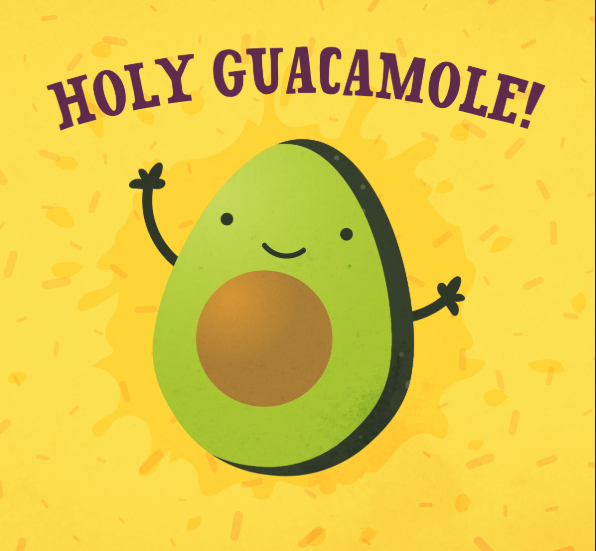Operation Inspiration
If you’ve been following my writing, you know that my mission is to help people find meaning in the mundane and the extra in the ordinary – which will, G-d-willing, be the subtitle of my next book. It should come as no surprise to you, then, that the inspiration for this column was something somewhat less than ethereal and spiritual. This concept came, in fact, from Seudas Shlishis leftovers.
You see, as we were clearing the table from Seudas Shlishis (aka shalashudis) I noted with a bit of ‘ick’ that the guacamole which had been so vibrant and green only two hours before was now turning a dark brown. The obvious thought then, was, “Hey, that’s like the Jewish People!” OK, so maybe it’s not so obvious. But let’s take a few steps back and try to follow the thought.
Avocados, as most people know, are a fruit masquerading as a vegetable. Brachos bee winners can tell you that people often guess the bracha on avocados is ho’adama, but really it’s ha’eitz. The green color is found more frequently by vegetables so people get confused. Technically, avocados are berries, with one large seed each. What does that have to do with Jews? Well, while we know people come from the earth, our neshamos come from a higher location and we have to remember not to get muddied up and bogged down by the physicality of the world. We have to be like fruits of the tree, which grow high in the air, and not like fruits of the ground, mired in the dirt.
Then of course, there’s the fact that once avocados are exposed to the elements outside their protective peel they get discolored very apparently and very quickly. That’s what really caught my attention that night, and made me think about how delicate we are and how easy it is for us to be affected by the atmosphere we’re in. We should realize how easy it is for the world around us to impact our values and change us.
There’s an old chef’s trick, however, which fits in very well with this approach. You see, if the avocado’s pit is kept in the container with the cut or mashed avocado, it doesn’t turn brown. OK, so that’s what they tell you. Scientists will be party-poopers and say that actually anything that blocks the air from getting to the guac will help and the pit doesn’t exude any special kind of chemical protection. You could just as easily drop a golf ball in your guacamole to keep it from turning brown or better yet, cover it with plastic wrap pushed down against the dip. Adding an acid like lemon or lime juice will help too, and many recipes call for them anyway.
To my way of thinking, though, the analogy of the pit or seed preventing the discoloration parallels how the Torah protects us from being adversely affected by our environment. Keeping our core values close to us provide that invisible layer of protection that helps us ward off the impact of the world around us.
As I began going down this road, I found even more interesting things. For example, avocados are not self-pollenating. That means they need to be in the presence of other avocado trees in order to grow. We know that we each need other people in order to develop as Jews too. We learn from others or with others, and we perform chesed to and receive chesed from them. Jews are social creatures and avocados apparently are too!
When mashing avocados on Shabbos, one is allowed to pour lemon or lime juice on the mixture (for actual mashing directions please speak to your Rabbi) because the prohibition of ‘losh,’ kneading, is only when the liquid is combining loose particles of food and that is not the case by avocados. My thought here was that when we are pressed (or oppressed,) we cling together as one and instead of being ruined, we gain a rich texture that is quite appealing.
Another interesting fact I discovered in researching for this column – no, I’m not really an expert in them just because – is that they are each hand-picked, often by using long poles to reach the highest fruit. To me, this is because just as a machine can’t properly handle avocados without harming them, the laws of nature can’t handle the unique qualities of each of us so Hashem gets personally involved in our lives.
While avocados mature on the tree, they don’t actually ripen until they’re picked. When you look at an avocado from the outside, you can’t tell if it’s ready without seeing how it reacts to pressure, i.e. squeezing it. If it’s too hard, it’s not ready. People too may grow up a certain way but without being on their own, they can’t develop the traits they need. If avocados are unforgiving and hard, they’re not ready to be consumed, and people who are rigid are also not ready to be part of society, not a healthy part anyway.
I’m sure if we kept looking we’d find more examples so feel to chip in. In the meantime, let us be inspired by the avocado to recognize our own uniqueness and that of our fellow man, and continue to find lessons for our spiritual growth in the physical world. To miss out would be pit-iful.
© 2019 – All Rights Reserved
Did you enjoy this column? Feedback is welcome and appreciated. E-mail info@JewishSpeechWriter.com to share your thoughts. You never know when you may be the lamp that enlightens someone else.
